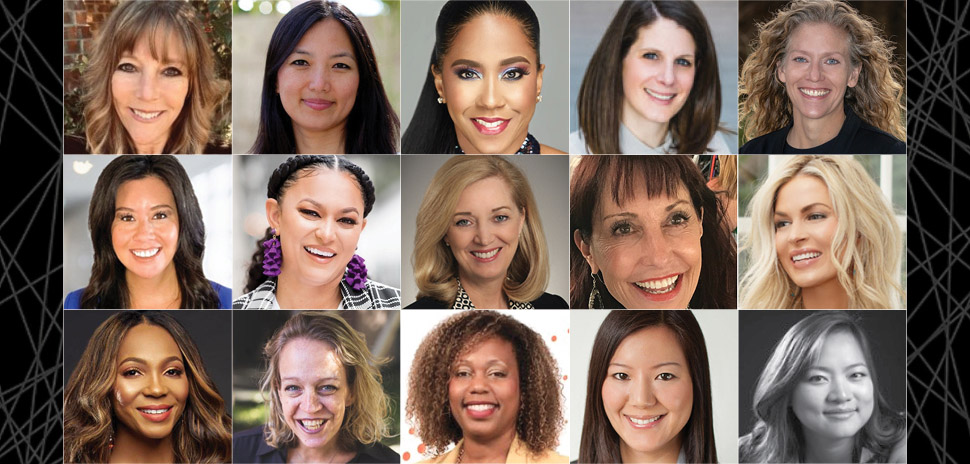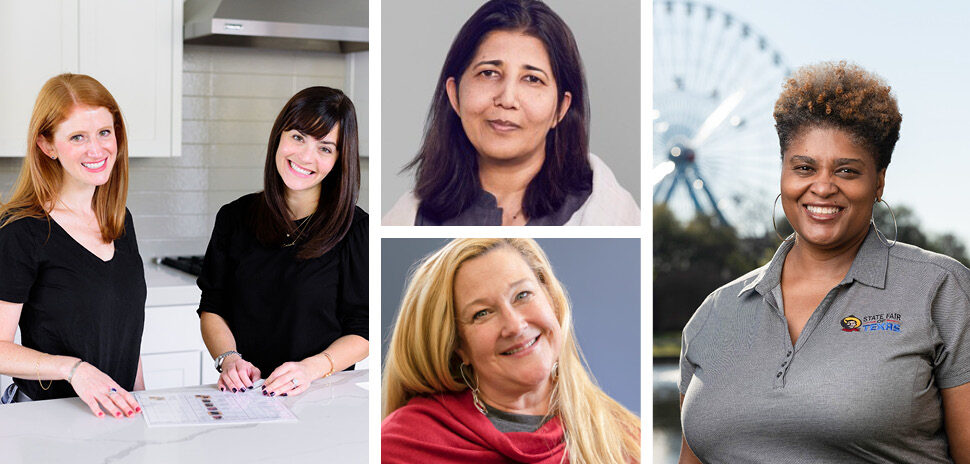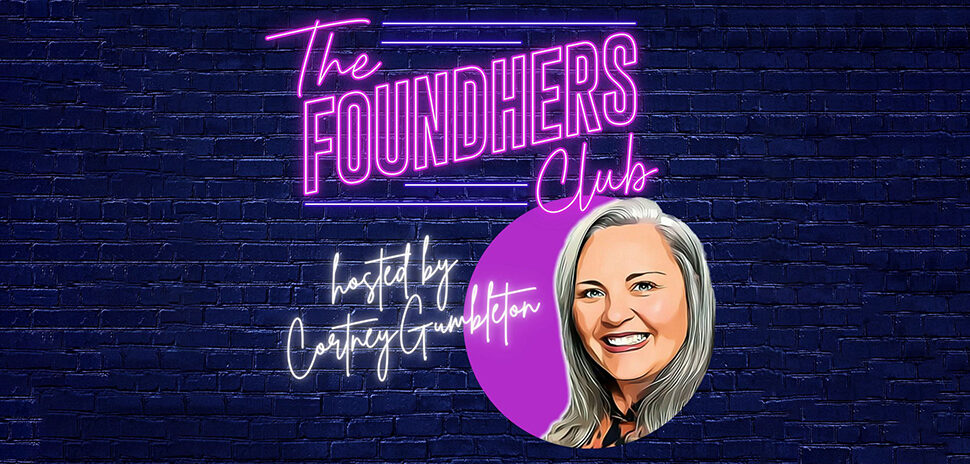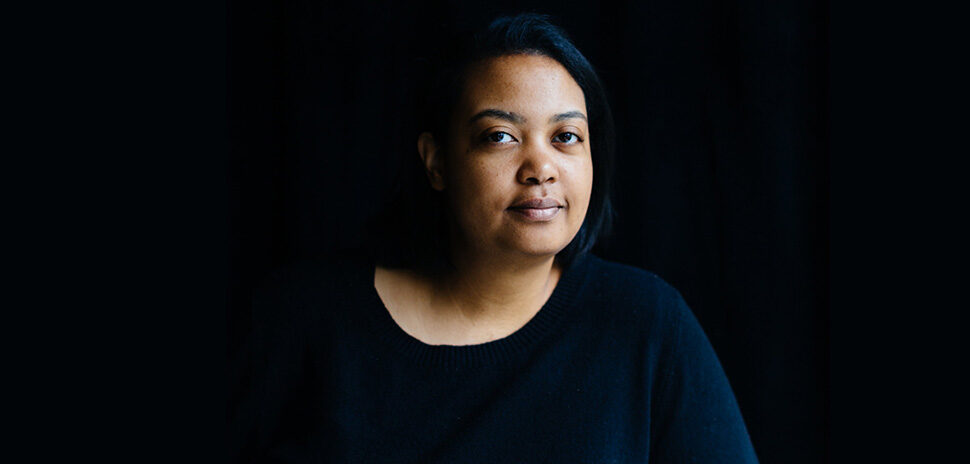As The DEC Network has declared: Dallas is No. 1 in the nation for women to become entrepreneurs.
In an effort to continue supporting their entrance into the startup community, The DEC each year hosts the Women of Innovation Summit at Dallas Startup Week.
The two-day event was intended to be a place of networking and empowerment for female entrepreneurs to take their dreams and plans to the next level, Lead Organizer Dresden Goldberg said. It’s all about women helping women in business.
This year’s speakers included: Joni Carswell, CEO and President of Texan By Nature; Jamie O’Banion, founder and CEO of BeautyBio; Mahisha Dellinger, founder and CEO of CURLS; and Danyel Surrency-Jones, co-founder and CEO of POWERHANDZ.
“Navigating this uncertain time has required all leaders to pivot and rapidly navigate a new path forward,” O’Banion, who led Five Things to Do For Your Business When You Leave Today, said. “I look forward to sharing at Women of Innovation the critical pillars to building a successful business and maintaining a growth trajectory amidst times of both calm and turbulence.”
Dallas Innovates (virtually) attended this year’s summit—and last year’s, too—and rounded up a few highlights and quotable moments from select sessions throughout the day.
Alex Edwards and Sophia Gonzalez contributed to this report.
The Power of Branding
Consumers in the modern age are constantly swimming in seas of products. From piles of tennis shoes to seemingly bottomless cups of coffee, we are made to pick between numerous brands that are all selling the same thing.
If that’s the case, why are jam-packed mini vans willing to wait 20 minutes for a Starbucks coffee rather than five for McDonald’s? The secret is buried beneath the branding, according to Founder and CEO of Curls Beauty Brands, Mahisha Dellinger.
“Why do we afford a Tesla over a Toyota?” Dellinger said during her session. “Why do we choose Nike over New Balance? It’s all about the power and branding, and it’s the sexiness that comes with it.”
The sexiness that Dellinger referred to blends with branding to create an element that captures the desires of a target subject. In order to do so, the business mogul suggests different elements that add value to a company. This contributes to what she calls her ‘brand bible.’
“If you don’t know who your ideal customer is, how do you know how to sell to him or her? You have to understand who she or he is,” Dellinger said. “Let’s think in the realm of age, let’s think about demographics, let’s think about lifestyle. Let’s think about their socio economic brackets. Think about all those things, and how they like to engage and like to be spoken to.”
Dellinger’s brand focuses on appealing to the girl next door by being casual and conversational. Keeping it cool and collected is a major theme that keeps the brand strong and trusted. After the plastic packaging falls to the floor, and the boxes get thrown in dumpsters, there is one thing that outlasts the prepackaged logos: Trust.
“If they trust you, then they will follow your lead as you develop and continue to grow your brand with more products, more services, they will follow you along your path and your branded journey,” Dellinger said. “So figure out ways where you can instill and encourage trust between your customer and your brand.”
Do You Really Know Your Customer?
According to a group of female startup founders, customer segmentation is key to success. And the first step to achieving that is authenticity—particularly during a global pandemic.
Anjie Vichayanonda, founder and CEO of Leg Up Legal; Karen Jenkins, senior director, regional sales executive, Capital One; Kristy Alballero, co-founder and COO, IOOGO; and Marty McDonald, CEO of Boss Women Media weighed in during a virtual panel moderated by Tracey Altman, principal at Altman Consulting.
“We get very comfortable thinking we know our customer. But businesses are always evolving, especially this year. Don’t go in assuming you know how people are operating,” Jenkins said. “I continuously see us trip over assuming things are the same as they were six months ago. We have to look at interactions as brand new every time. I never recommend complacency. Treat everything like a brand new relationship.”
The most important part about launching a company is to find a target customer and serve them well. The panelists recommend being honest with yourself that a potential customer might not be a fit. As Alballero said: “You don’t want to start out with a bad reputation on your name. Be selective with your customer.”
When it comes to the pandemic, all startups should have a meeting about what to take and leave post-COVID. Have a business plan that’s flexible. It should be an evolution as the industry changes, Altman said.
Some tools the panelists suggested using to communicate your brand messaging during this virtual era included LinkedIn, Facebook ads, and online meetups. As pointed out, everyone is looking for online resources right now.
“During this time we’ve grown our LinkedIn activities. Prior to COVID I was using LinkedIn like many people—as a glorified resume. I didn’t really do much engagement. But we’ve found that all of our key audiences are on LinkedIn and they were adopting it in troves,” Vichayanondas said. “We put in a lot of effort into creating content and doing weekly Zoom meetups that we would promote on LinkedIn. Doing that weekly helped us grow nationwide.”
When it comes to that authenticity, a focal point right now lies with the social injustice movement spreading across the nation. All panelists have recommendations when it comes to implementing diversity and inclusion initiatives.
“The first thing is letting everyone know who you stand for,” McDonald said. “We specifically are for African American women and women of color. And, white women allies—we want them to come, but if you’re uncomfortable being around people who don’t look like you, don’t come. I think it’s something our City has to overcome.”
McDonald recommends starting by understanding the adversities that Black and brown women face. You have to be ready to have conversations, she said—ones you might not have had before. If you don’t support diverse businesses, “you’re part of the problem.”
How Do You Measure Success
Florence Lowe COO of Synerzip; Amy Czuchlewski, SVP of Technology at Bottle Rocket; Youyi Kitson, COO of Haxiot; and Jenn Garbach, the head of Business Brand and Marketing at Capital One, discussed how to ensure you have the right metrics when running a startup. It was moderated by Gabrielle Madison, the director of Community Relations at Thomson Reuters.
Here’s a snippet from the chat.
Madison: What is the secret to measuring success?
Kitson: I represent the startup community among the speakers here. As a startup, you’re constantly growing through rapid growth mode. So you’re KPI (key performance indicator) constantly changes. The most important part of success to me is making sure your goals match up to your company. I often look at the KPI to see what’s right for my company.
Lowe: First, you have to know where you want to go. That’s the first way to succeed at measuring the right things and being successful. Second, you have to have your people and team in the same room and on the same page, in the same paragraph, in the same sentence.
Why do you think sometimes businesses forget to measure things that are critical to success?
Czuchlewski: I don’t know that people forget to measure—there’s just so many other things to do. It might not be the top priority at the moment, but it is important. There are some things that are real easy to measure. And everybody knows that. But when you get into the deeper analytics, it may take more to put in the data to measure it. Implementing a new product to get feedback can be overwhelming, but there’s a lot of tools to help with that.
Garbach: We just get busy, and I don’t know if that changes from entrepreneurship to the corporate ring. There’s a sub-bullet to that, which is goal setting. Think about the proactive versus the reactive.
What are your favorite tools or metrics that you would advocate for?
Garbach: Something customer-centric. Make sure you’re measuring inside-out and outside-in for your business. I’m always a huge advocate for NPS (net promoter score), customer sentiment, and seeing how your brand is doing over time.
Lowe: Before metrics, if you find the right people to work with, everything else will follow. It’s about people before metrics.
Czuchlewski: Sharing and sharing transparently is incredibly important. At Bottle Rocket, we have a monthly meeting for everyone to share their work and see how it’s impacting the company. We started a D&I initiative and we published it on our website. It’s not where we want it to be, but we have to have it there at this time so we can be honest with ourselves and audience. ![]()
Get on the list.
Dallas Innovates, every day.
Sign up to keep your eye on what’s new and next in Dallas-Fort Worth, every day.































